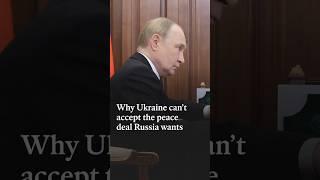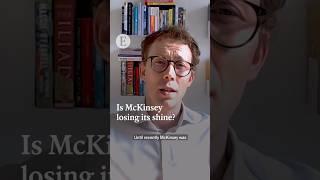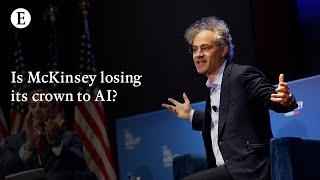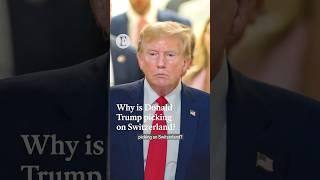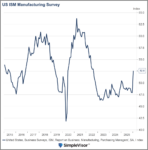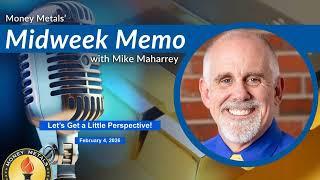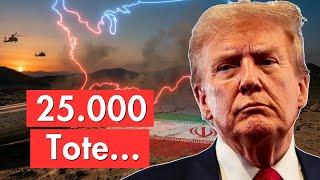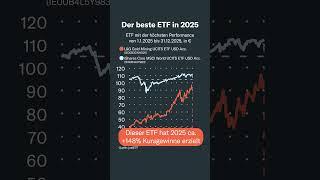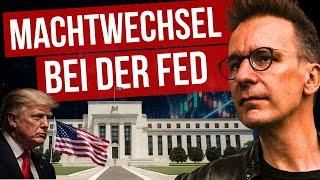Category Archive: 5) Global Macro

Why this city is Xi Jinping’s pet project
This “city of the future” is Xi Jinping’s pet project. Don Weinland, our China business and finance editor, visited Xiongan to see if the former “ghost town” can really attract residents.
#china #urbanplanning #city
Read More »
Read More »
Why a peace deal in Ukraine is unlikely
Despite Donald Trump’s optimism, a peace deal in Ukraine still remains unlikely. Shashank Joshi, our defence editor, explains why.
Read More »
Read More »
Weekly Market Pulse: Big Rate Cuts? Not Right Now
“I think we could go into a series of rate cuts here, starting with a 50 basis-point rate cut in September”. “If you look at any model” it suggests that “we should probably be 150, 175 basis points lower.”
Treasury Secretary Scott Bessent in a Bloomberg interview, 8/13/25
President Trump and others in his administration have been pushing for lower interest rates for months – one wonders what they’re worried about – and are doing and saying...
Read More »
Read More »
The Alaska summit was a symbolic victory for Putin
The Trump-Putin summit in Alaska has ended without a deal. But the meeting was a symbolic victory for the Russian president, whose status as a pariah in the West is over. Our diplomatic editor, Anton La Guardia, reports from the press conference.
#donaldtrump #america #putin #russia #ukrainerussianwar #latestnews
Read More »
Read More »
Why Ukraine can’t accept the peace deal Russia wants
Vladimir Putin will meet Donald Trump in Alaska to discuss peace in Ukraine—without Volodymyr Zelensky at the table.
Trump has floated “land swaps”—trading Ukrainian territory for peace.
But frontline soldiers have told our Ukraine correspondent, Oliver Carroll, that they will never accept a territorial concession, leaving Zelensky caught between the hardline stance of his troops and Washington’s shifting demands.
#warinukraine #zelensky...
Read More »
Read More »
The looming threat from Russia in the Arctic
Why is there a Russian settlement in Norway? Adam Roberts, The Economist’s digital editor, travelled to Svalbard, an archipelago in the Arctic, to find out if it could become a geopolitical flashpoint between Russia and NATO.
Read More »
Read More »
Is McKinsey losing its shine?
McKinsey, the consulting giant, is approaching its centenary, but growth has slowed and rivals are closing in. Jason Palmer, co-host of The Intelligence podcast, and Tom Lee-Devlin, our business editor, explore whether this industry titan can stay top dog.
Read More »
Read More »
How is Israel getting away with its actions in Gaza?
Amid mounting evidence of war crimes, Prime Minister Binyamin Netanyahu has announced a new offensive on Gaza City. Our foreign editor looks at who could stop him.
Read More »
Read More »
Is McKinsey losing its crown to AI?
McKinsey, the consulting giant, is approaching its centenary, but growth has slowed and rivals are closing in. Jason Palmer, co-host of The Intelligence podcast, and Tom Lee-Devlin, our business editor, explore whether this industry titan can stay top dog.
00:00 - Has McKinsey lost its shine?
00:40 - What is happening at McKinsey?
01:09 - How did McKinsey grow in the past?
02:08 - How does McKinsey compare to BCG?
03:05 - Why are McKinsey...
Read More »
Read More »
How is America upgrading its nuclear arsenal?
Are America’s nukes too old? The US government seems to think so—it’s in the middle of the biggest overhaul of its nuclear infrastructure in 50 years. Our diplomatic editor visited a strategic-missile base to find out more.
Read More »
Read More »
How influential is Nvidia’s boss?
How much influence does Nvidia’s boss have over Donald Trump? Our business columnist looks at the extent of tech mogul Jensen Huang’s powers of persuasion over America’s president.
Read More »
Read More »
Why is Donald Trump picking on Switzerland?
Donald Trump announced Swiss exports to America will soon face tariffs of 39%, which came as a shock to Switzerland
Read More »
Read More »
How OnlyFans transformed porn
OnlyFans transformed the online porn industry by charging users to subscribe. Its most famous creator, Bonnie Blue, told The Economist she made $250,000 from the site in March 2025. With the platform now on sale for $8bn, who might buy it?
Read More »
Read More »
How OnlyFans transformed porn
OnlyFans transformed the online porn industry by charging users to subscribe. Its most famous creator, Bonnie Blue, told The Economist she made $250,000 from the site in March 2025. With the platform now on sale for $8bn, who might buy it?
Click the link to read why Bonnie Blue thinks "being an online creator isn’t as glam as it seems". econ.st/3H07CBj
Welcome to Bonnie Blue’s Britain: econ.st/3HaWoKf
Should you have to prove your age...
Read More »
Read More »
Who is Israel’s surprising ally?
Which Muslim-majority country is Israel surprisingly close friends with? From oil to weapons, learn how this decades-long partnership has evolved.
Read More »
Read More »
Donald Trump has started a fight that America can’t win
Trump's sweeping set of tariffs will ultimately make American consumers poorer, as Rachana Shanbhogue, The Economist's business affairs editor, explains.
Read More »
Read More »
Is AI making you stupid?
A growing body of work is exploring the potentially detrimental effects of AI use for creativity and learning. Our AI writer explains why it’s not all doom and gloom on The Intelligence podcast.
Read More »
Read More »
AI for Dummies: AI Turns Us Into Dummies
Given that AI is fundamentally incapable of performing the tasks required for authentic innovation, we're de-learning how to innovate. EDITOR's NOTE: I just got called out by a programmer who uses AI who was furious and wrote "students cheat, always have, tell us something we don't already know". I responded: "did you read the MIT paper or the other link?" Of course he didn't: TL/DR, which proves my point. Even the programmer...
Read More »
Read More »
Why are so many being killed near Gaza’s aid sites?
“The worst-case scenario of famine is currently playing out in the Gaza Strip”, according to a group of UN agencies. The Economist has used satellite imagery and videos from inside Gaza to analyse how people have been killed trying to collect basic food supplies.
Tap the link in bio to read why Israel must end its war in Gaza.
Read More »
Read More »
Do Americans have kids if they like the president?
Does the outcome of America’s presidential election have an effect on whether Democrats and Republicans decide to have children? Our data editor, Dan Rosenheck, explains why there is some evidence that it does #us #fertility #donaldtrump
Read More »
Read More »













